第34章
But owned he had a stubborn spirit, That made him trust alone in merit:
Would rise by merit to promotion;
Alas! a mere chimeric notion.
The doctor, if you will believe him, Confessed a sin, and God forgive him:
Called up at midnight, ran to save A blind old beggar from the grave:
But, see how Satan spreads his snares;
He quite forgot to say his prayers.
He cannot help it, for his heart, Sometimes to act the parson's part, Quotes from the Bible many a sentence That moves his patients to repentance:
And, when his medicines do no good, Supports their minds with heavenly food.
At which, however well intended, He hears the clergy are offended;And grown so bold behind his back, To call him hypocrite and quack.
In his own church he keeps a seat;
Says grace before and after meat;
And calls, without affecting airs, His household twice a day to prayers.
He shuns apothecaries' shops;
And hates to cram the sick with slops:
He scorns to make his art a trade, Nor bribes my lady's favourite maid.
Old nurse-keepers would never hire To recommend him to the Squire;Which others, whom he will not name, Have often practised to their shame.
The statesman tells you with a sneer, His fault is to be too sincere;And, having no sinister ends, Is apt to disoblige his friends.
The nation's good, his Master's glory, Without regard to Whig or Tory, Were all the schemes he had in view;Yet he was seconded by few:
Though some had spread a thousand lies, 'Twas he defeated the Excise.
'Twas known, though he had borne aspersion, That standing troops were his aversion:
His practice was, in every station, To serve the king, and please the nation.
Though hard to find in every case The fittest man to fill a place:
His promises he ne'er forgot, But took memorials on the spot:
His enemies, for want of charity, Said he affected popularity:
'Tis true, the people understood, That all he did was for their good;Their kind affections he has tried;
No love is lost on either side.
He came to court with fortune clear, Which now he runs out every year;Must, at the rate that he goes on, Inevitably be undone.
Oh! if his Majesty would please To give him but a writ of ease, Would grant him license to retire, As it hath long been his desire, By fair accounts it would be found, He's poorer by ten thousand pound.
He owns, and hopes it is no sin, He ne'er was partial to his kin;He thought it base for men in stations To crowd the court with their relations:
His country was his dearest mother, And every virtuous man his brother:
Through modesty or awkward shame (For which he owns himself to blame), He found the wisest men he could, Without respect to friends or blood;Nor never acts on private views, When he hath liberty to choose.
The sharper swore he hated play, Except to pass an hour away:
And well he might; for to his cost, By want of skill, he always lost.
He heard there was a club of cheats, Who had contrived a thousand feats;Could change the stock, or cog a dye, And thus deceive the sharpest eye:
No wonder how his fortune sunk, His brothers fleece him when he's drunk.
I own the moral not exact;
Besides, the tale is false in fact;
And so absurd, that, could I raise up From fields Elysian, fabling AEsop;I would accuse him to his face, For libelling the four-foot race.
Creatures of every kind but ours Well comprehend their natural powers;While we, whom reason ought to sway, Mistake our talents every day:
The ass was never known so stupid To act the part of Tray or Cupid;Nor leaps upon his master's lap, There to be stroked, and fed with pap:
As AEsop would the world persuade;
He better understands his trade:
Nor comes whene'er his lady whistles, But carries loads, and feeds on thistles;Our author's meaning, I presume, is A creature BIPES ET IMPLUMIS;Wherein the moralist designed A compliment on human-kind:
For, here he owns, that now and then Beasts may degenerate into men.